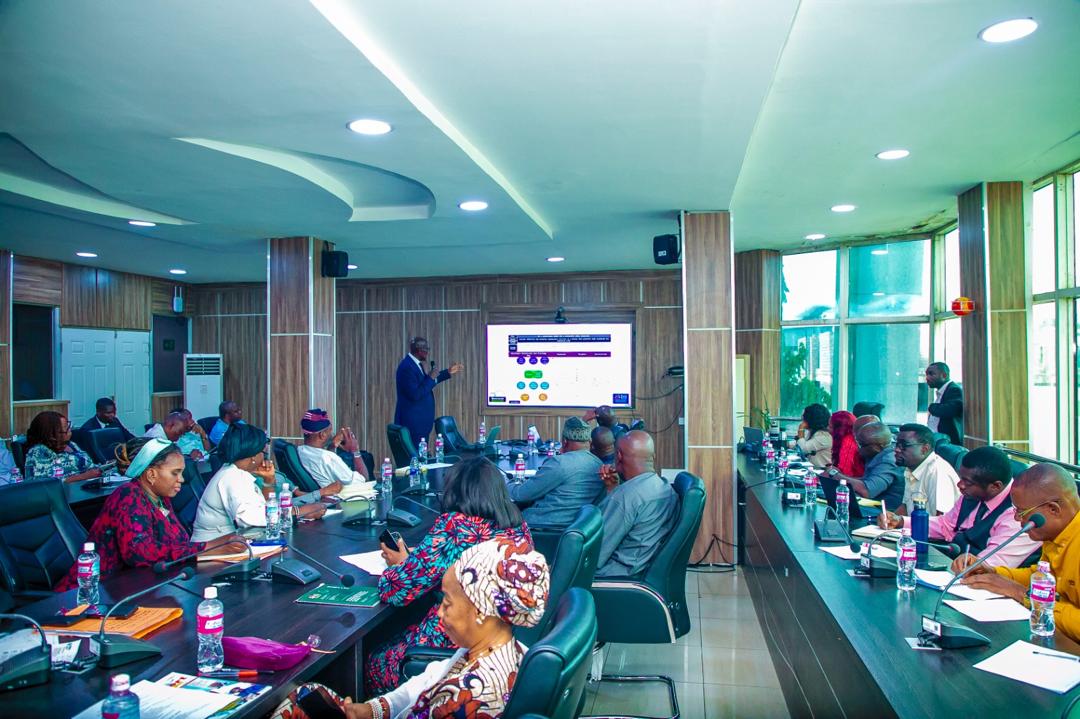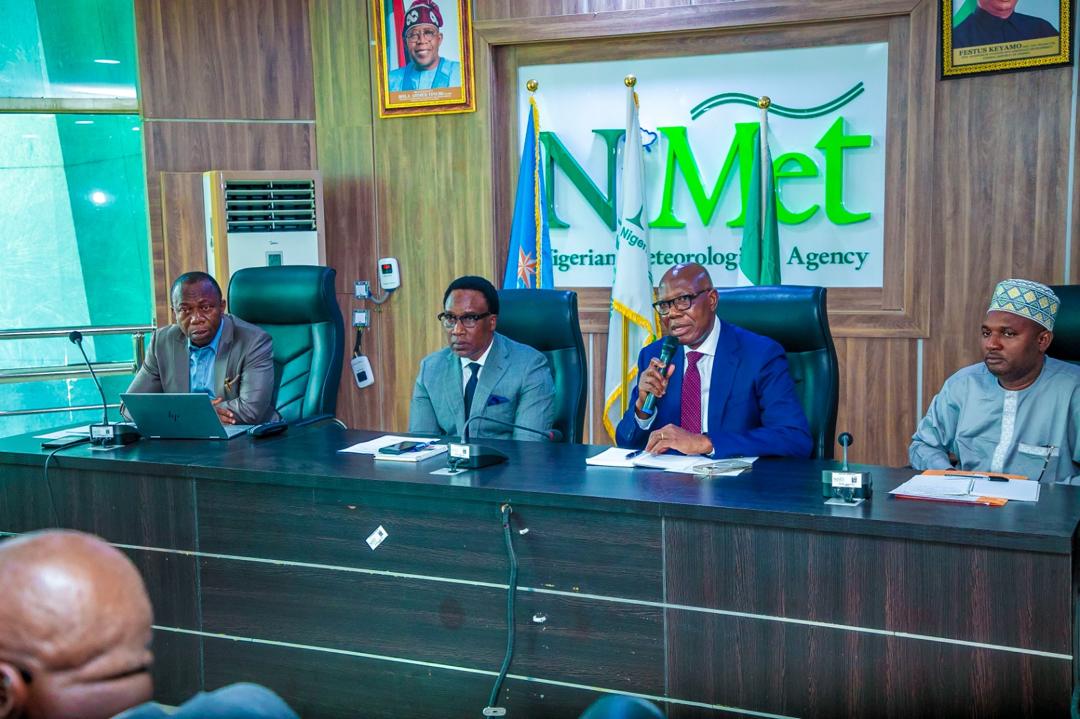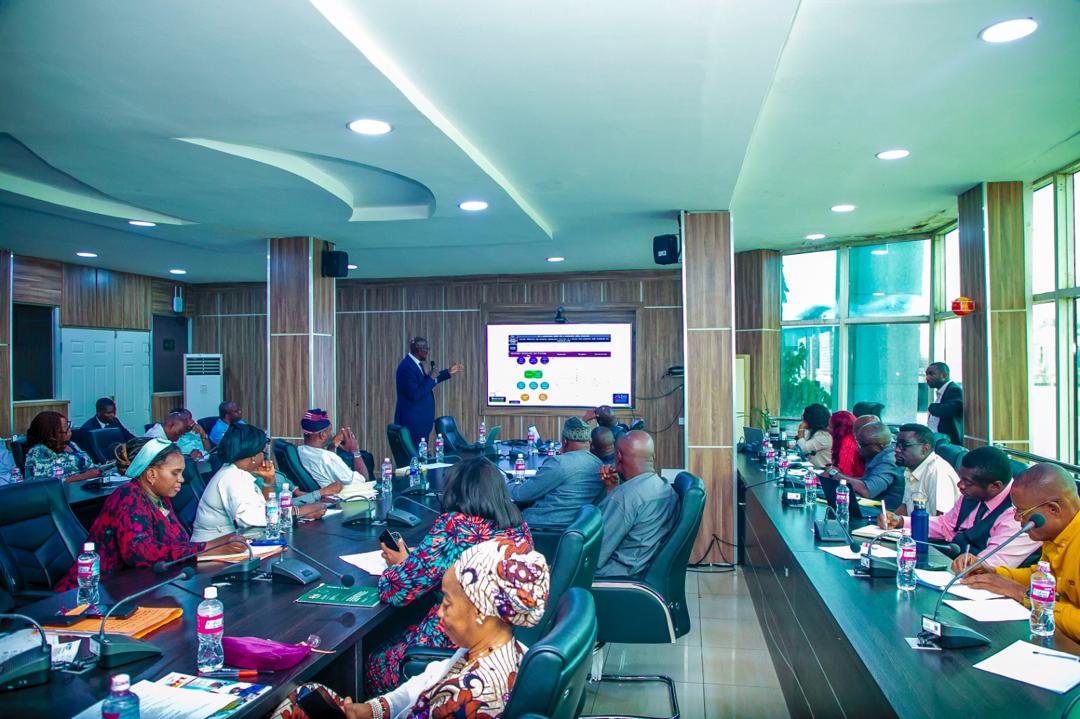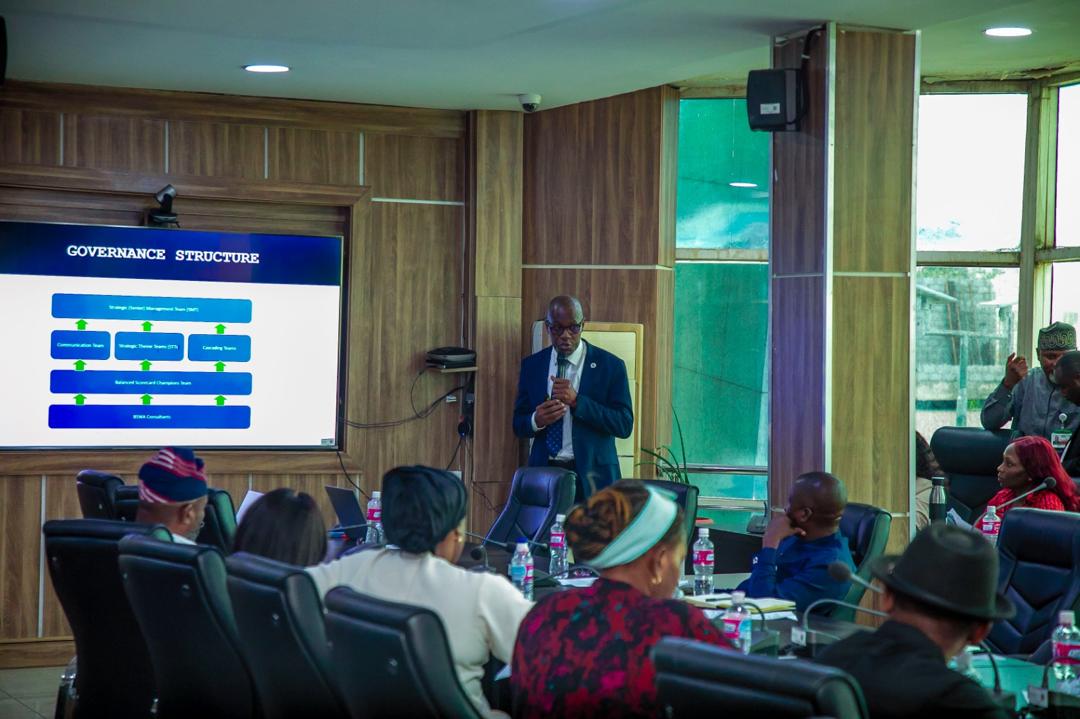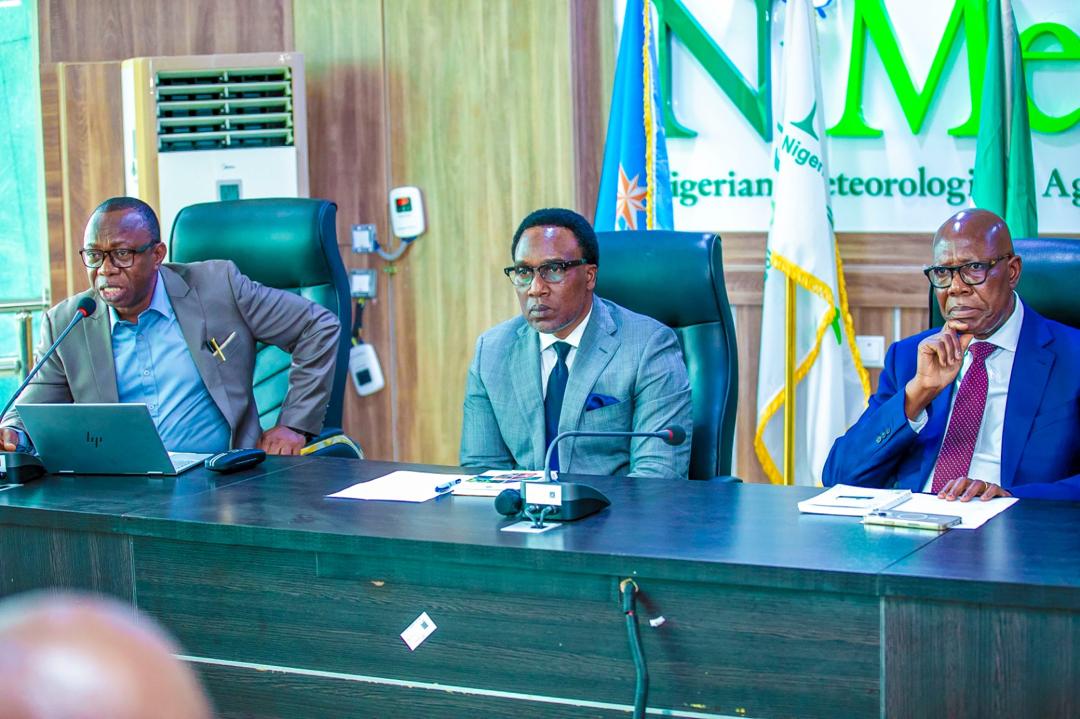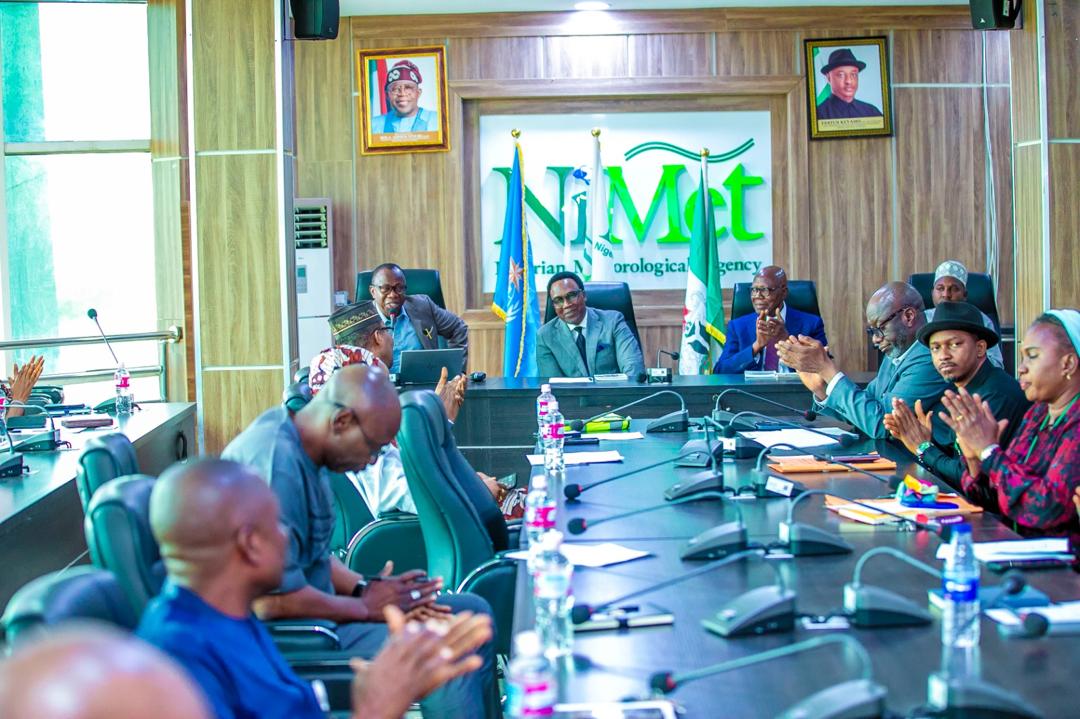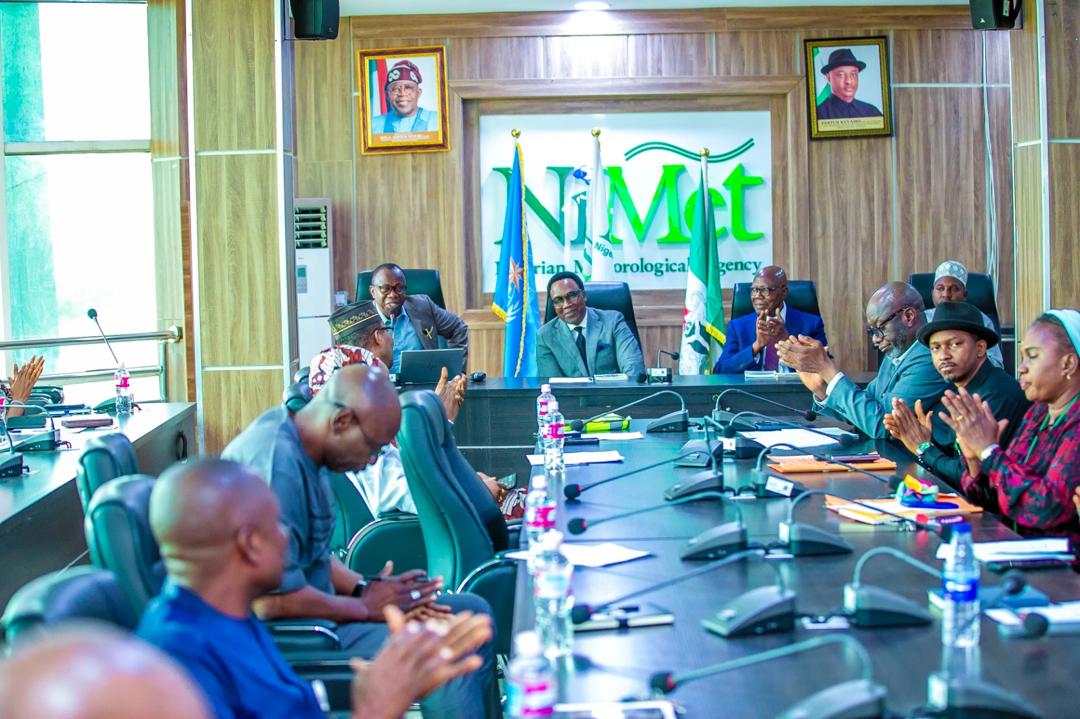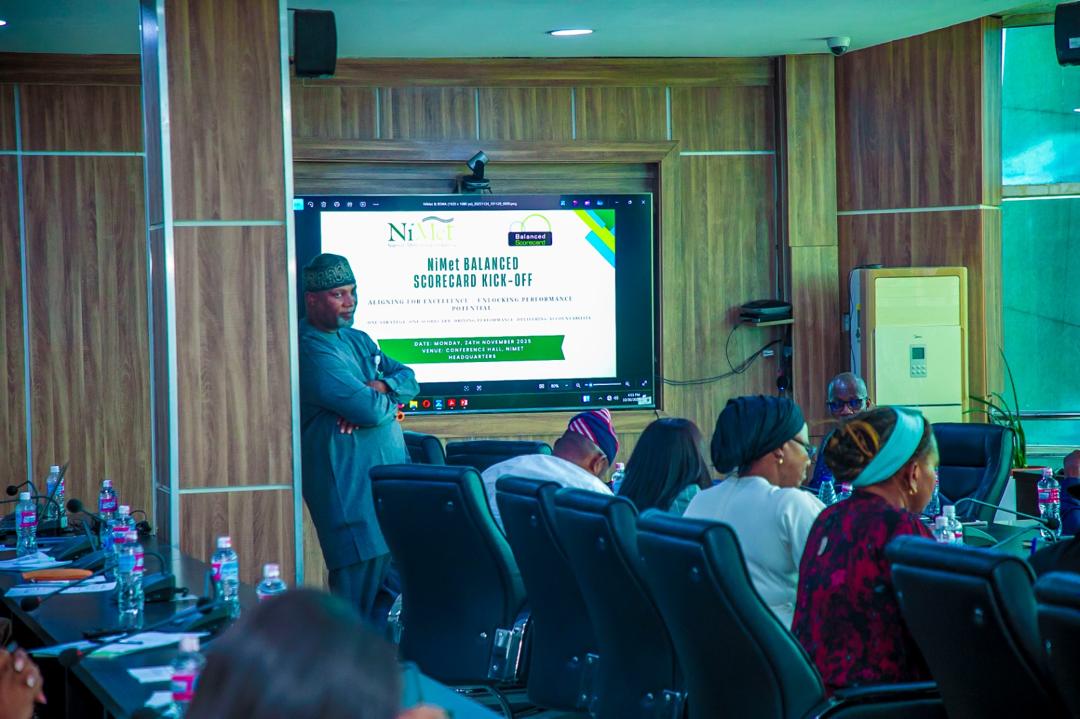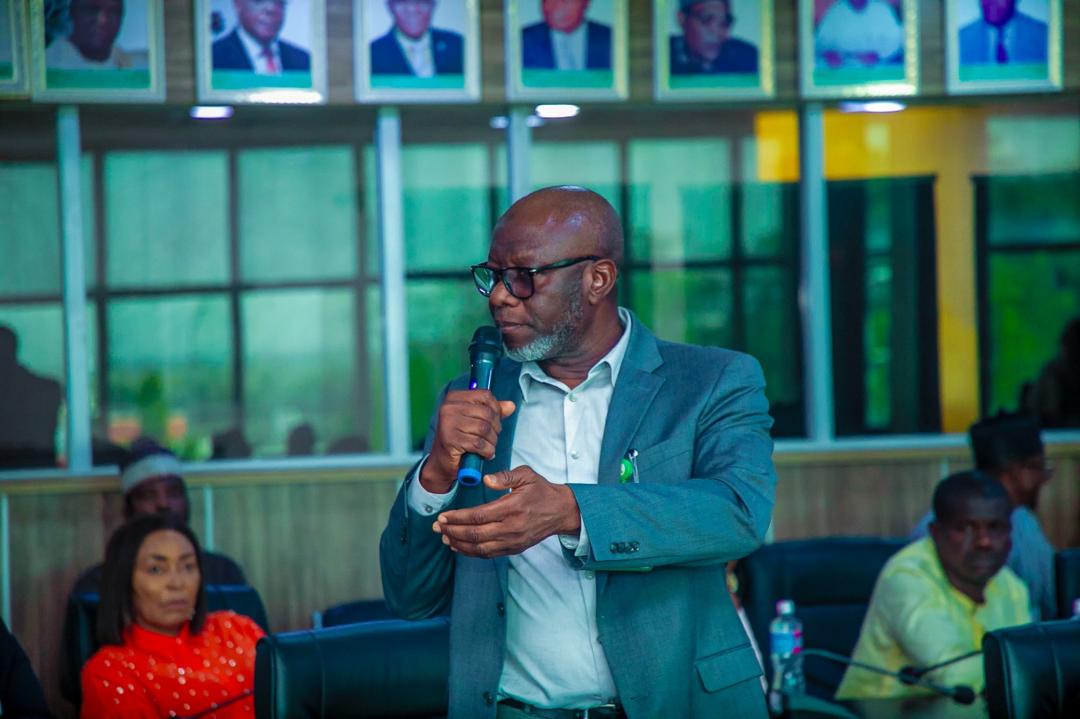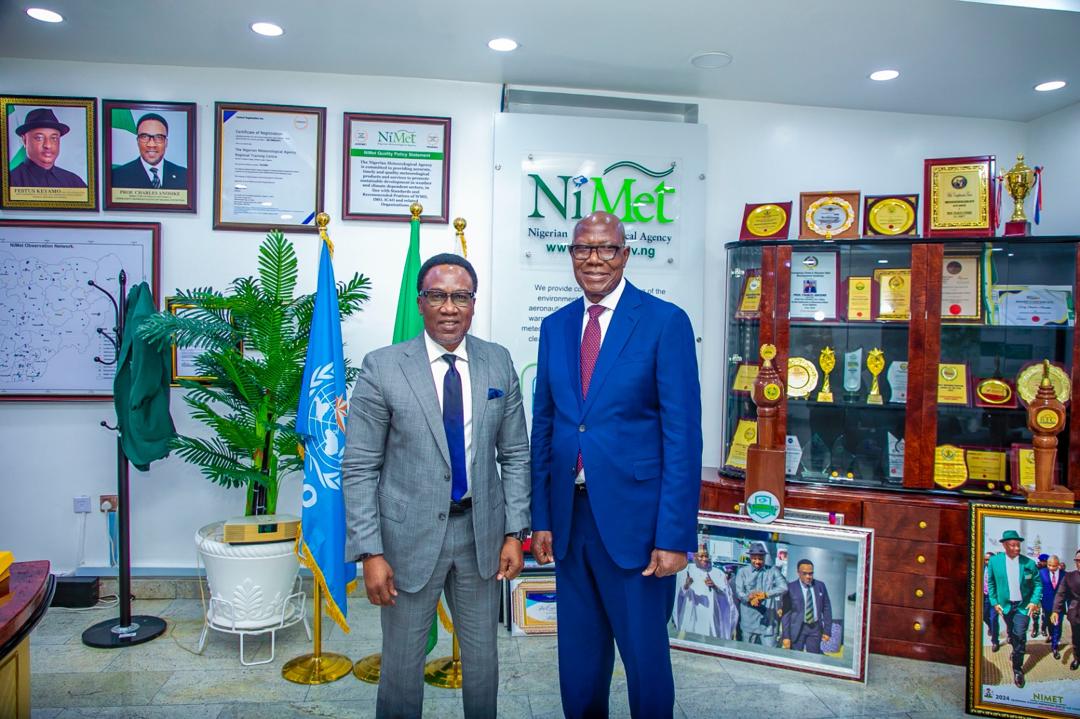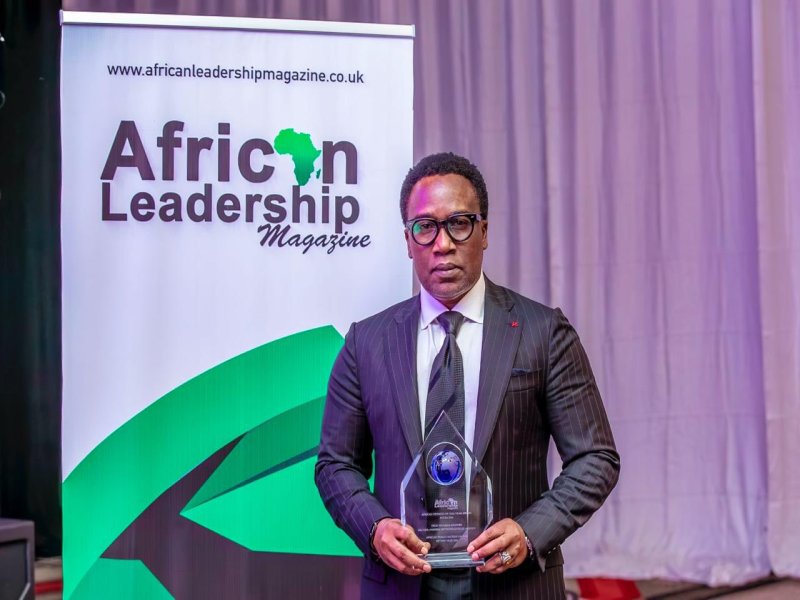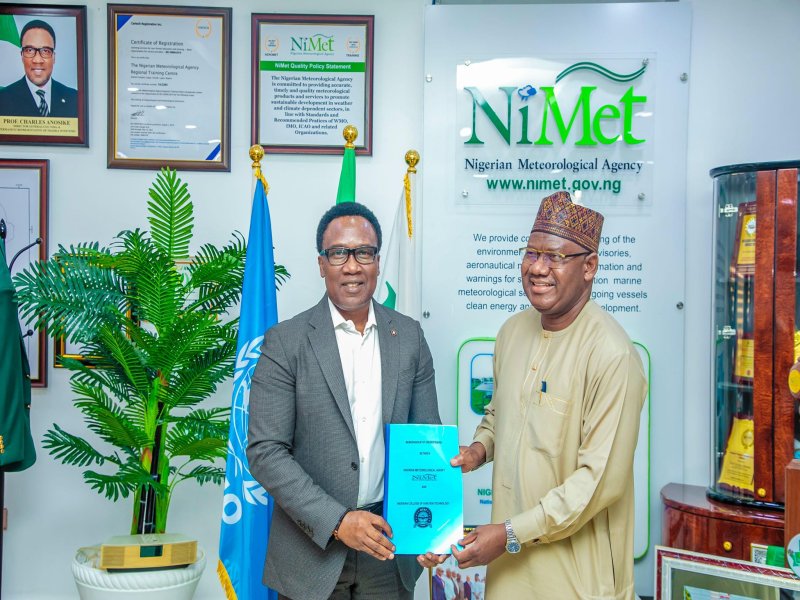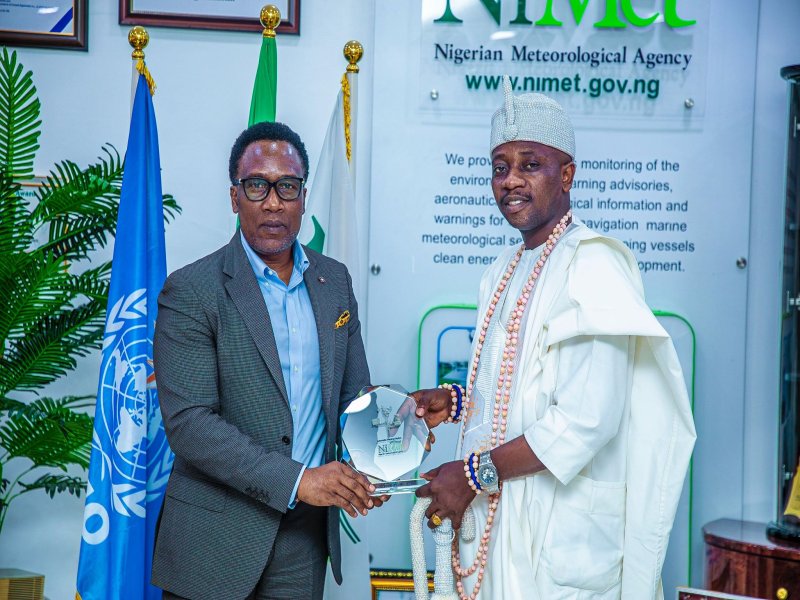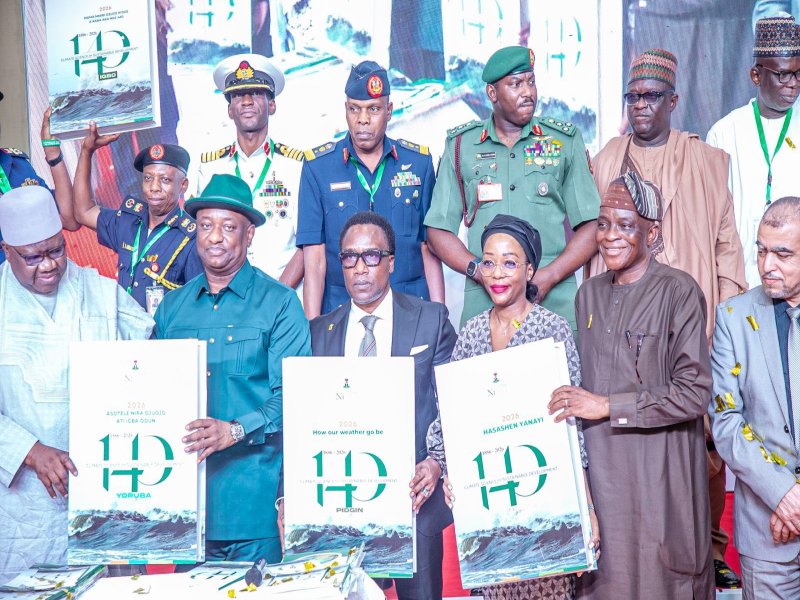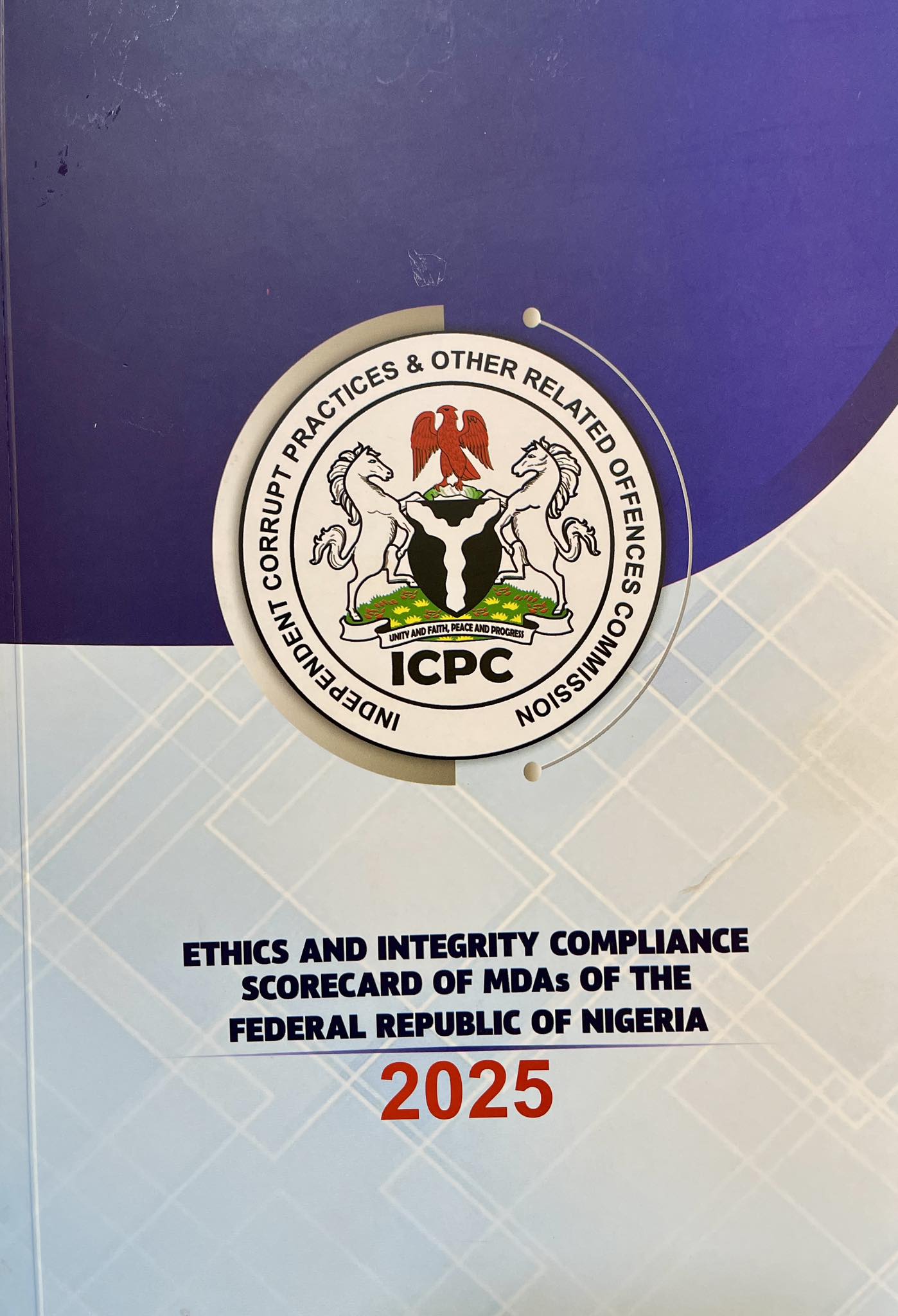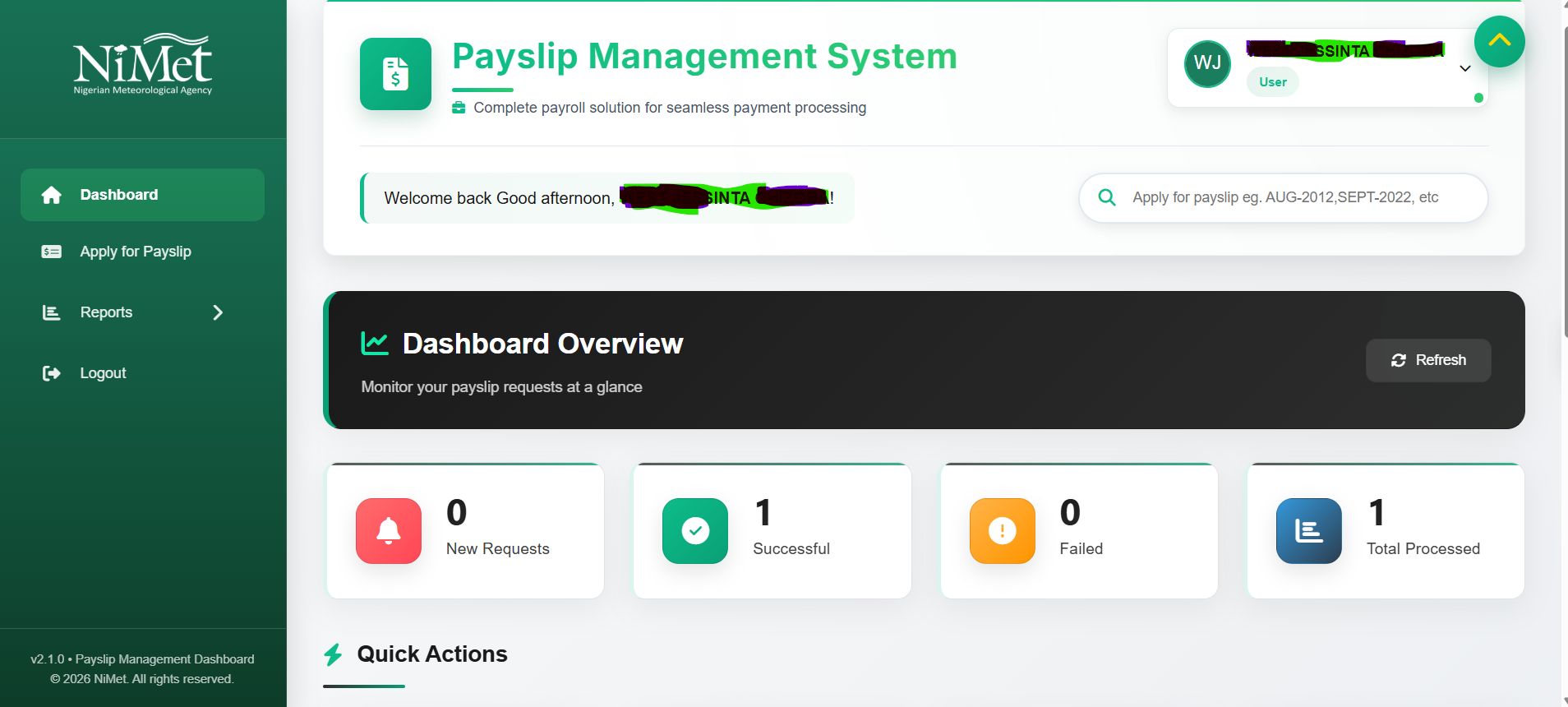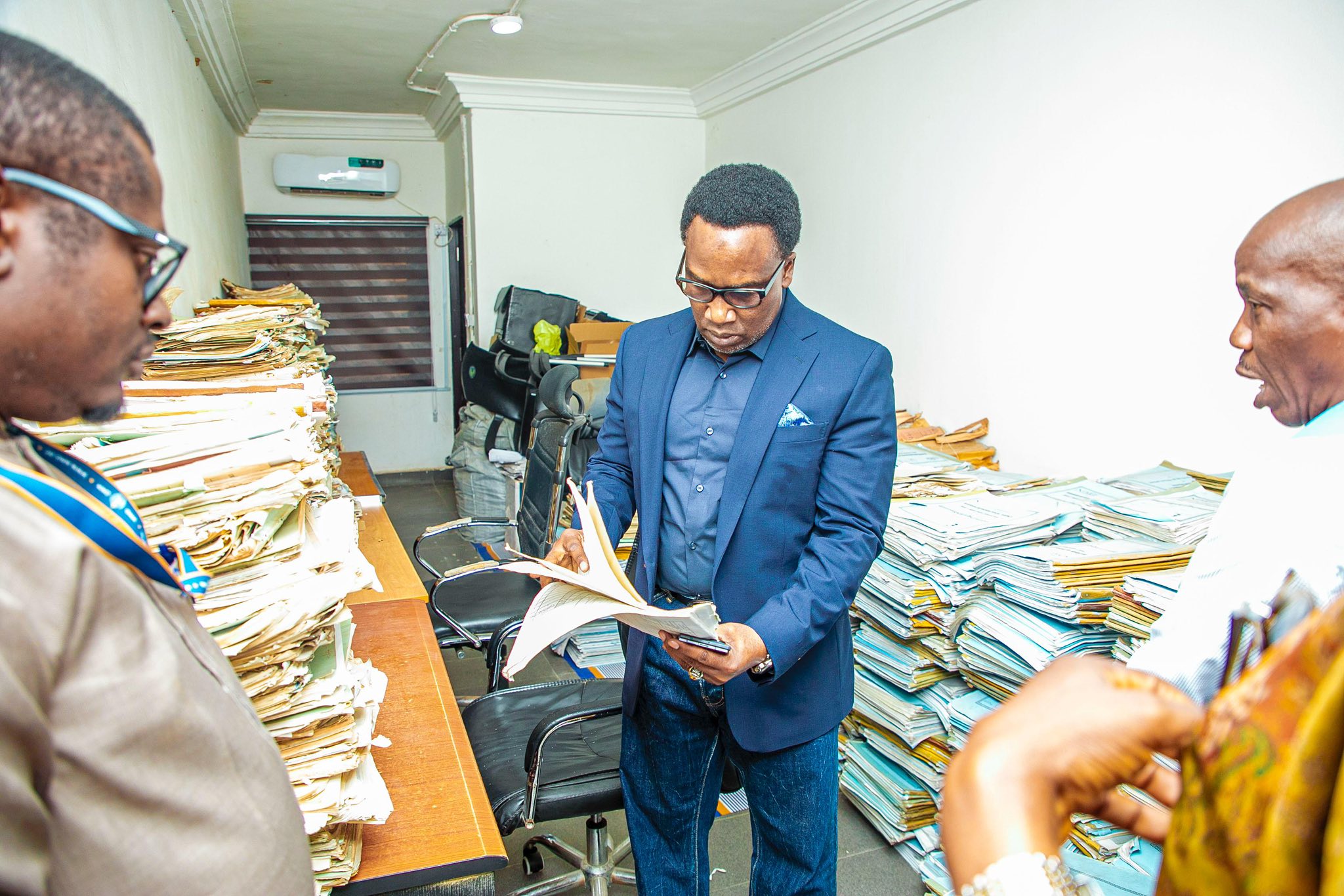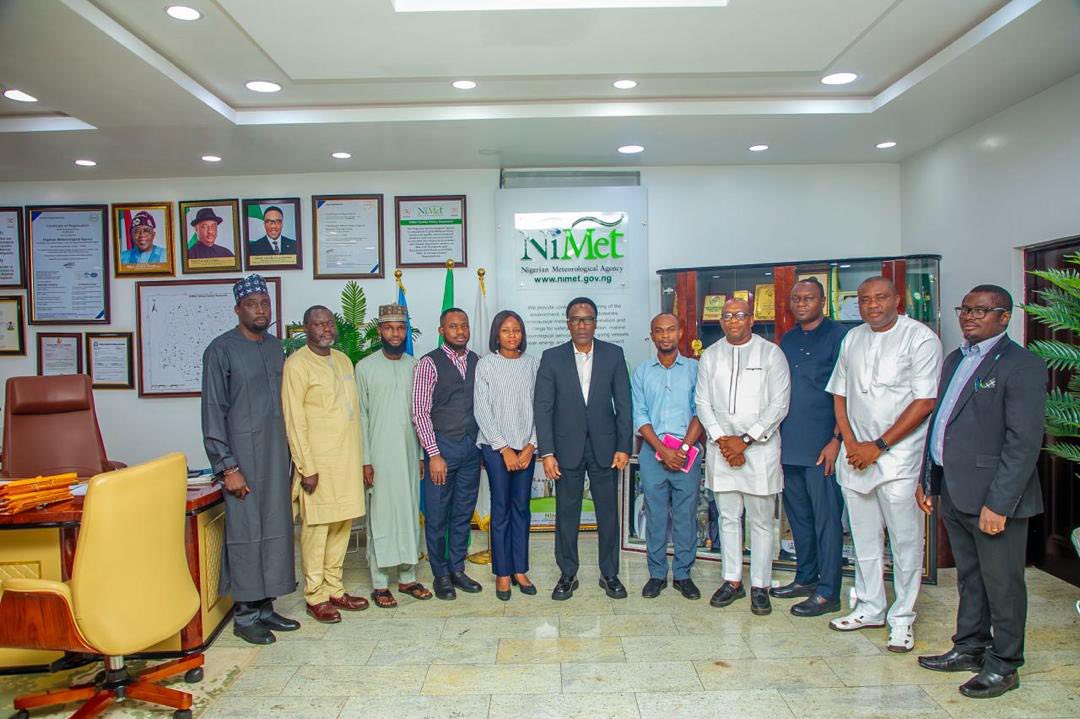The Nigerian Meteorological Agency (NiMet) has begun an internal transformation process with the introduction of the Balanced Scorecard Performance Management System, designed to strengthen efficiency, accountability, and strategic alignment across the agency. NiMet held a kick-off meeting with its Directors and senior management staff today at the NiMet Headquarters, Abuja, to introduce the framework and discuss how the Balanced Scorecard can enhance performance management and improve service delivery. Declaring the meeting open, the Director General/CEO of NiMet, Prof. Charles Anosike, said staff welfare and capacity development remain top priorities for management, in line with the Renewed Hope Agenda of President Bola Ahmed Tinubu and the performance bond signed with the Minister of Aviation and Aerospace Development, Mr. Festus Keyamo, SAN. "We are starting a new journey at NiMet as we prepare to roll out a Balanced Scorecard Performance Management System. It is one of the global management tools organizations use to translate strategy into performance," Anosike said. "This meeting will help us improve our strategy formulation and create room for enduring creativity in the agency." He noted the rising importance of intangible assets such as intellectual property, human resources, data, innovation, and brand reputation in today's knowledge-driven economy. The Director General also highlighted that the system helps ensure proper alignment between strategy and objectives, enabling staff to clearly understand their roles and responsibilities in achieving the agency's goals. Speaking at the session, Mr. Kayode Sufianu, Founder/CEO of Balanced Scorecard West Africa, commended NiMet for taking a decisive step toward institutionalizing a globally recognized performance framework. He stated that the Balanced Scorecard "offers organizations a powerful structure for turning strategy into measurable outcomes," adding that NiMet's adoption of the system demonstrates strong leadership commitment to accountability, innovation, and improved public service. Prof. Anosike further emphasized that modern institutional value extends beyond financial records or physical assets. He stressed that value creation now depends on people’s ideas, customer relationships, innovation, and a strong organizational culture capable of delivering quality service. He described the engagement as a kick-off session that provides an overview of the Balanced Scorecard system and prepares the agency for the demanding but rewarding work ahead. He concluded his remarks by urging staff to embrace performance management as a foundation for improving service delivery, adding that while strategy sets the direction, successful organizations distinguish themselves by how effectively they implement, execute, and sustain their goals.
